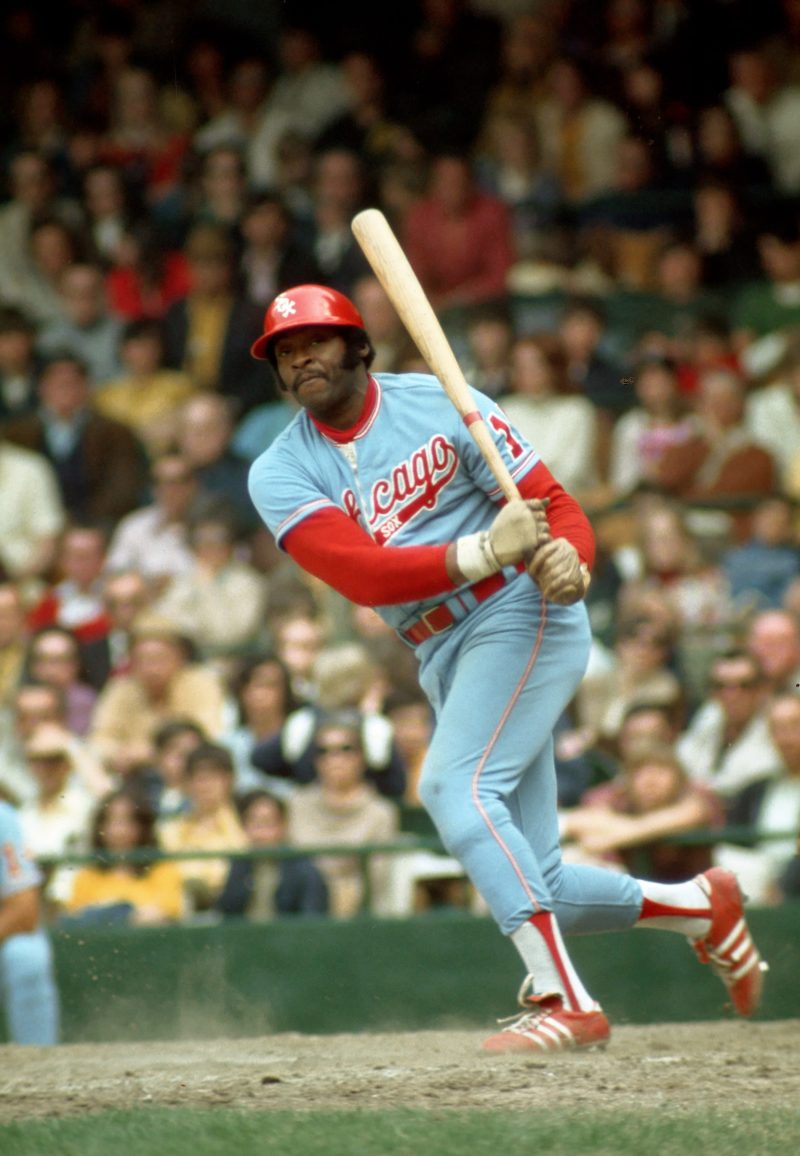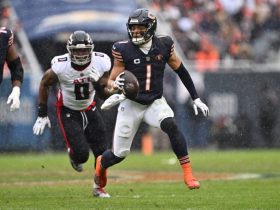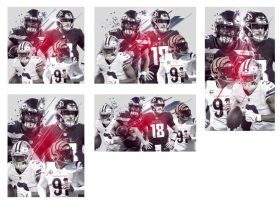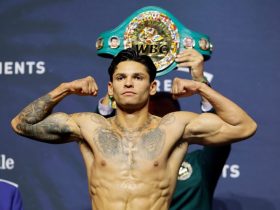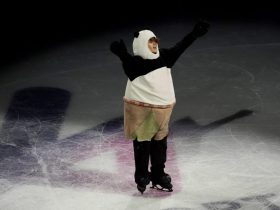DALLAS — They prayed, they held hands, and when they finally heard the news they’ve been awaiting for four decades, the Dick Allen family broke into tears, hugged one another tightly and yelled, “Finally! Finally!’’
Dick Allen, who was on the Hall of Fame ballot for the first time in 1983, was elected Sunday night into the Baseball Hall of Fame by the Classic Baseball Era Committee, alongside longtime friend Dave Parker.
“It was like champagne popped,’’ said his son, Richard Allen Jr. 59. “I wanted to hear it. I wanted to see it. We saw it. Big sigh of relief. … Really, there’s a lifetime of emotion just pouring out. It was worth the wait. It just makes it that much more exciting.
“Long overdue. Long overdue.’’
The family, with Allen Jr., his son Trey, and nephew Rick Allen, who sat together in a private room at the Anatole Hotel, received calls from Hall of Famer Goose Gossage, Philadelphia Phillies owner John Middleton, and friends and families throughout the country.
Follow every MLB game: Latest MLB scores, stats, schedules and standings.
Middleton, responsible for the Phillies retiring Allen’s number three months before he passed at the age of 78 in 2020, openly cried when he heard the news.
“I’m still crying thinking about it,’’ Middleton said. “I just wish he was here to enjoy it.’’
Yes, the shame is that Dick Allen won’t be walking across the stage at the induction ceremony this summer, but the truth, Allen Jr. said, is that his dad would have wanted everyone to rejoice and regale in baseball’s ultimate honor without him anyway.
This is why the family planned to celebrate the Hall of Fame in a way that Allen would have wanted, throwing back some cold beers to celebrate.
“I’ll be honest with you guys,’’ Allen Jr. said. “He always loved the green Heinekens. That’s what we’re getting. Ready to go get some green ones.’’
Allen laughed, knowing that if his father were still alive, he’d still rather talk about the horses than his 15-year career, earning seven All-Star berths, the 1964 Rookie of the Year award with the Phillies and the 1972 MVP award with the Chicago White Sox.
“You know, he never wanted to talk about it,’’ Allen Jr. said. “He never did talk about it. He always thanked and felt other people were more deserving. I used to tell him, “Your numbers are just as good. You should be there. You should be there.’
“And he’s like, “Yeah, I’m all right. I’m all right.’
“So, how it happened, it was so good.’’
Allen was on the Hall of Fame ballot 14 years, and twice was on the contemporary era ballot, falling one vote short in 2014 and once again in 2021.
Well, on this night, that heartbreak turned into euphoria when Hall of Fame president Josh Rawitch began reading Allen’s stats, with the family immediately knowing they were about to officially announce Dick Allen. He received 13 votes from the eight-member committee, one more than necessary.
They didn’t even hear Rawitch call out his name on the TV set with the celebration reverberating in the Cardinal A room at the Anatole hotel.
“We did it, we did it!’’
“He made it, he got in!’’
And, then, there was Gossage, who had been lobbying for Allen for years, calling him the most instrumental teammate of his career, on speaker phone, yelling: “No [freaking] way!’’
If Allen were alive, his family said, they’re not even sure he would have shown any emotion. This is a man who would much rather talk about his love for horse racing than his baseball career.
“He’s probably telling one of his old stories, his horse stories,’’ Allen Jr. said, “deflecting the honor, but appreciative of it at the same time. …They actually had to mail him the MVP trophy because he didn’t take it, so that’s his humbleness.
“So, for this, I think he’s happier that I would be doing this and not him.’’
If the evening could possibly be any sweeter, it was the news that Parker, his longtime friend from the Pittsburgh Pirates, would be going into the Hall of Fame together. Allen Jr. still has a glove, Cobra 19, that Parker gave him as a kid. He still has a large photograph of the two together.
Now, after battling deep-seated racism during their era — with Allen once wearing a baseball helmet playing first base because of objects thrown from the stands — they’ll be linked together forever in baseball immortality, a day the Allen family began to doubt would ever happen.
“I had kind of lost faith,’’ Allen Jr. said. “I kind of thought that, you know, eventually he’d be forgotten, and the people that were not knowing him to watch him play, that were they would be gone, and his family’s passed away.’’
Now, he’ll be forever remembered, not for the iconic Sports Illustrated cover in which he was juggling baseballs while smoking a cigarette, but for being one of the greatest players to play the game. He was one of the premier power hitters of his generation with six seasons of more than 30 homers and six seasons hitting at least. 300. He had the highest slugging percentage (.561) and OPS (.941) of every player with at least 3,000 plate appearances from 1964-1974 with the exception of Hall of Famer Hank Aaron.
Parker was also one of the most feared hitters in his 19-year career, the seven-time All-Star who won the 1978 MVP award, hitting .290 with 2,712 hits, 339 homers and 1,493 RBI.
“I’ve been holding this speech in for 15 years,’’ said Parker, who has been battling Parkinson’s disease. “This has been a long time coming.’’
Yes, indeed, for both of these sluggers.
The USA TODAY app gets you to the heart of the news — fast. Download for award-winning coverage, crosswords, audio storytelling, the eNewspaper and more.

